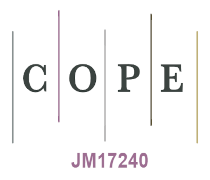Wpływ informacji medialnej na odtwarzanie pamięci zdarzeń
DOI:
https://doi.org/10.18778/1427-969X.12.04Słowa kluczowe:
witnesses testimony, false memory, autobiographical memory, media, memory distortionAbstrakt
This article focuses on the assessment of the credibility of the witnesses’ testimony. Conway model of autobiographical memory, and the theory of incorrect attribution sources indicates that our memory is based both on the original record of events and on additional information. If the new information is incorrect, the memory may become distorted. In the first part of the article are described mechanisms of autobiographical memory, which can lead to distortions of the original memory trace. The second part are devoted to empirical verification of the hypothesis that the media information distorts the eyewitness memory of an event.
Bibliografia
Baddeley A. (1998), Pamięć. Poradnik użytkownika, Prószyński i S-ka, Warszawa
Google Scholar
Brzeziński J. (1996), Metodologia badań psychologicznych, Wydawnictwo Naukowe PWN, Warszawa
Google Scholar
Ciosek M. (2003), Psychologia sądowa i penitencjarna, Wydawnictwo Prawnicze LexisNexis, Warszawa
Google Scholar
Conway M. A. (1991), In defense of everyday memory, „American Psychologist”, 46, 19–26
Google Scholar
DOI: https://doi.org/10.1037/0003-066X.46.1.19
Conway M. A., Anderson S. J. (1993), Investigating the structure of autobiographical memories, „Journal of Experimental Psychology: Learning, Memory and Cognition”, 19, 1178–1196
Google Scholar
DOI: https://doi.org/10.1037/0278-7393.19.5.1178
Conway M. A., Pleydel-Pearce Ch. W. (2000), The construction of autobiographical memories in the self-memory system, „Psychological Review”, 107, 261–288
Google Scholar
DOI: https://doi.org/10.1037/0033-295X.107.2.261
Conway M. A., Burt C. D., Kemp S. (2004), Memory for true and false autobiographical event descriptions, „Memory”, 12, 545–552
Google Scholar
DOI: https://doi.org/10.1080/09658210344000071
Conway M. A., Collins A. F., Anderson S. J., Gathercole S. E. (1996), Recollec-tions of true and false autobiographical memories, „Journal of Experimental Psychology: General”, 125, 69–95
Google Scholar
DOI: https://doi.org/10.1037/0096-3445.125.1.69
Ferguson G. A., Takane Y. (1999), Analiza statystyczna w psychologii i pedagogice, Wydawnictwo Naukowe PWN, Warszawa
Google Scholar
Goban-Klas T. (1999), Media i komunikowanie masowe. Teorie i analizy prasy, radia, telewizji i Internetu, Wydawnictwo Naukowe PWN, Warszawa–Kraków
Google Scholar
Klebaniuk J. (2003), Efekt kultywacji: Wpływ telewizji na poglądy, „Czasopismo Psychologiczne”, 9, 1, 99–110
Google Scholar
Loftus E. F., Wells G. L. (2003), Eyewitness memory for people and events, [w:] A. M. Goldstein, I. B. Weiner (red.), Handbook of Psychology. Forensic Psychology, Vol. 11, John Wiley & Sons, New Jersey, 149–160
Google Scholar
DOI: https://doi.org/10.1002/0471264385.wei1109
Maruszewski T. (2002), Psychologia poznania, Gdańskie Wydawnictwo Psychologiczne, Gdańsk
Google Scholar
Maruszewski T. (2005), Pamięć autobiograficzna, Gdańskie Wydawnictwo Psychologiczne, Gdańsk
Google Scholar
McCloskey M., Zaragoza M. S., Jamis M. (1987), Misleading postevent information and recall of the original event: further evidence against the memory impairment hypothesis, „Journal of Experimental Psychology: Learning, Memory and Cognition”, 13, 36–44
Google Scholar
DOI: https://doi.org/10.1037/0278-7393.13.1.36
Nęcka E., Orzechowski J., Szymura B. (2006), Psycholgoia poznawcza, Wydawnictwo Naukowe PWN, Warszawa
Google Scholar
Niedźwieńska A. (2004), Poznawcze mechanizmy zniekształceń w pamięci zdarzeń, Wydawnictwo Uniwersytetu Jagiellońskiego, Kraków
Google Scholar
Poznaniak W. (2005), Psychologia sądowa – wybrane zagadnienia, [w:] H. Sęk (red.), „Psychologia Kliniczna”, 2, Wydawnictwo Naukowe PWN, Warszawa
Google Scholar
Schacter D. L. (2003), Siedem grzechów głównych pamięci, Państwowy Instytut Wydawniczy, Warszawa
Google Scholar
Waltoś S., Waltoś M. A. (2003), Podstawy prawa i procesu karnego – prawo karne, Wydawnictwo Prawnicze LexisNexis, Warszawa
Google Scholar
Wojciszke B. (1986), Teoria schematów społecznych. Struktura i funkcjonowanie jednostkowej wiedzy o otoczeniu społecznym, Wydawnictwo Polskiej Akademii Nauk, Wrocław
Google Scholar
Zasępa T. (2000), Media, człowiek, społeczeństwo. Doświadczenie europejsko-amerykańskie, Edycja Świętego Pawła, Częstochowa
Google Scholar
Zawadzki B., Strelau J., Szczepaniak P., Śliwińska M. (1998), Inwentarz osobowości NEO-FFI Costy i McCrae. Adaptacja polska. Podręcznik, Pracownia Testów Psychologicznych Polskiego Towarzystwa Psychologicznego, Warszawa
Google Scholar
Pobrania
Opublikowane
Jak cytować
Numer
Dział
Licencja

Utwór dostępny jest na licencji Creative Commons Uznanie autorstwa – Użycie niekomercyjne – Bez utworów zależnych 4.0 Międzynarodowe.








